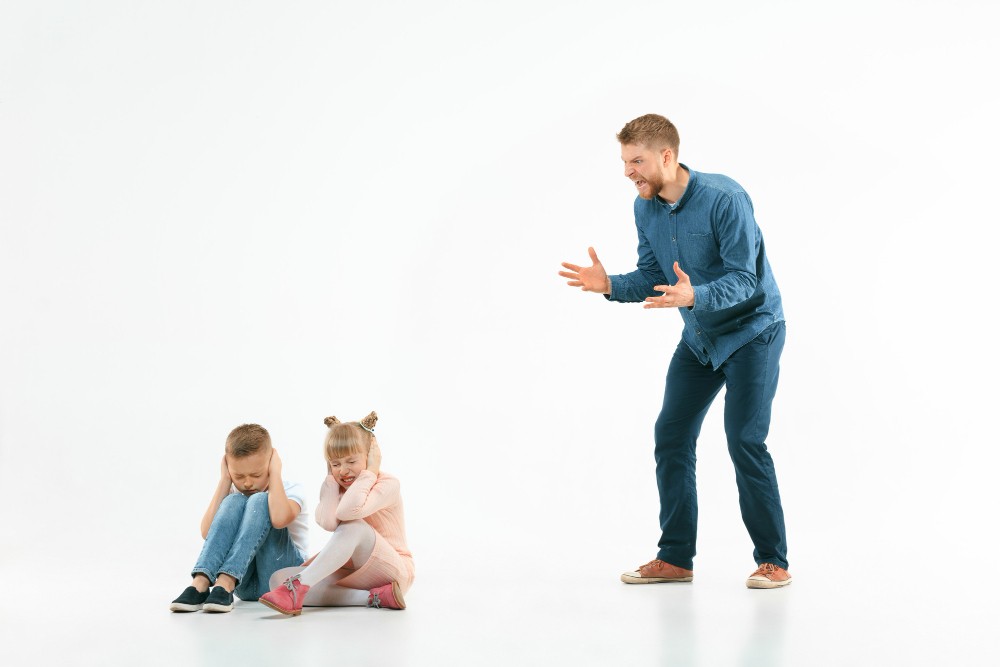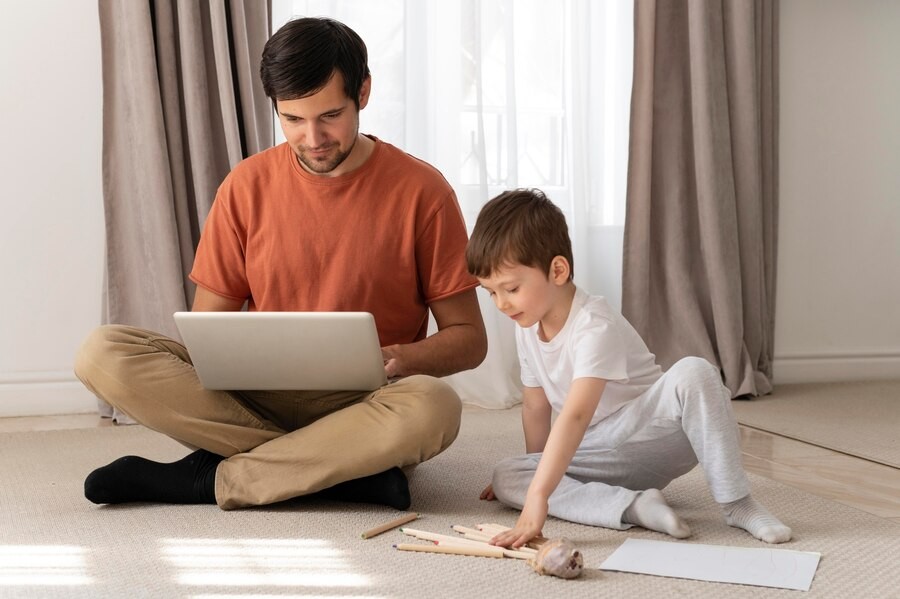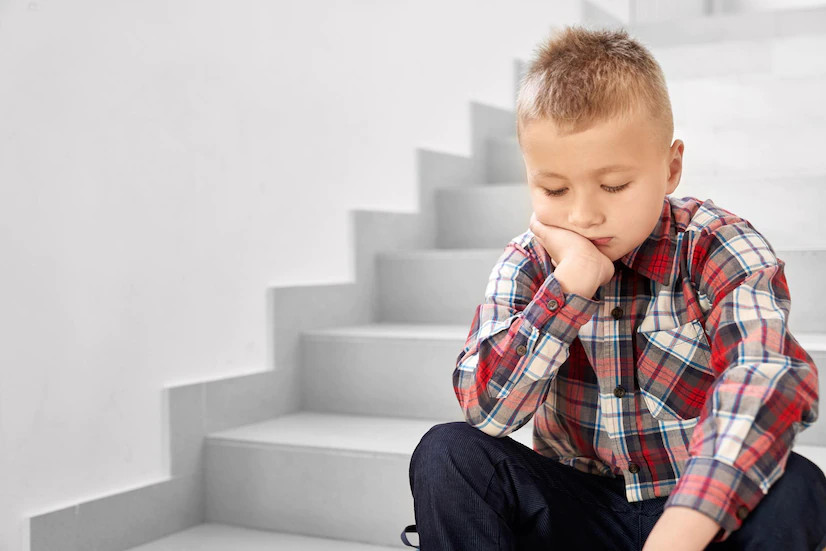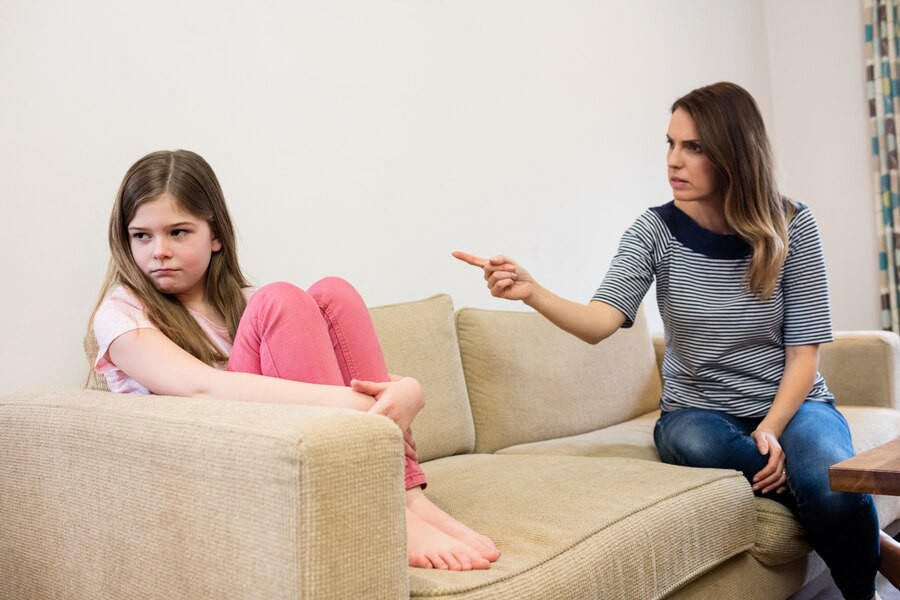In daily interactions with children, parents may sometimes raise their voices to correct or remind them of certain behaviors. Although some parents might view this approach as effective for improving their child’s attitude, experts caution that yelling can have significant negative effects on a child’s development.
The Risks of Yelling at Children
Every parent wants the best for their child, but disciplining can sometimes lead parents to use yelling as a way to get a child’s attention or correct behavior.
However, research indicates that yelling, especially when accompanied by harsh language, can have similar negative impacts on children’s development as physical punishment.
Children who are frequently yelled at can develop behavioral issues and psychological effects similar to those of children who experience physical punishment. These effects may include stress, anxiety, insecurity, and even depression, with the impacts intensifying if yelling is accompanied by criticism, blaming, or harsh words.
Short-Term Effects
In the short term, yelling can lead to several immediate behavioral and emotional responses, including:
- Increased aggressive behaviors, like irritability, shouting, or hitting
- Anxiety symptoms, such as excessive worry or fear
- Behavioral issues, with boys often displaying loss of control and girls responding with anger
- A sense of emotional distance from parents
Long-Term Effects
- Problems of worsening behavior
Over time, frequent yelling can intensify aggressive behavior in children. The more often a child is shouted at, the more likely they are to react aggressively, creating a cycle of tension and aggression in the home.
- Depression
Persistent shouting can lead to feelings of fear, sadness, and psychological distress. Long-term exposure to such treatment increases the risk of developing mental health issues, including depression and anxiety. If left unaddressed, children may be at risk of engaging in self-destructive behaviors, such as substance abuse, risky sexual behavior, or suicidal thoughts.
- Emotional Problems
Yelling can result in emotional issues, such as:
-
- Low self-esteem
- Lack of confidence
- Social withdrawal and difficulty connecting with others
- Chronic Pain
Children exposed to frequent yelling may be at a higher risk of chronic pain in adulthood, including issues like arthritis, headaches, and neck or back pain, as a result of accumulated stress and trauma.
Preventing the Habit of Yelling at Children
When you scream at your child may not be aware of its long-term impact. It’s easy to overlook the long-term consequences of yelling, but there are several strategies parents can use to manage emotions and avoid outbursts:
- Recognize the physical signs of anger. Physical signs like tightness in the chest, an upset stomach, increased heart rate, changes in breathing, or warmer skin can signal rising anger. Recognizing these signs can help parents take steps to calm down before reacting.
- Practice deep breathing. Taking deep breaths increases oxygen and reduces carbon dioxide levels, helping calm the nervous system and relax the body.
- Step away before talking to your child when you are angry. When emotions run high, it’s best to give yourself a moment in a different room before speaking with your child.
- Connect at an eye level to your child. When you’re ready to speak, sit at the same level as your child, making eye contact. This promotes a sense of closeness, helping children feel valued and heard, which encourages them to listen.
Yelling can negatively affect a child’s emotional and psychological development in the long term. When feeling anger arise, it’s better to take a moment to calm down before addressing the child. For additional parenting guidance, consult a psychologist or use the Ai Care app’s consultation feature.
Looking for more information on pregnancy, breastfeeding, women’s and children’s health? Click here!
- dr Hanifa Rahma
Radhakrishnan, R. (2021). Can Yelling at a Child Be Harmful?. Available from: https://www.medicinenet.com/can_yelling_at_a_child_be_harmful/article.htm
Cleveland Clinic. (2022). How To Stop Yelling at Your Kids & Get Them To Listen Without Bribing. Available from: https://health.clevelandclinic.org/6-steps-to-get-kids-to-listen-no-yelling-or-bribing-involved/
Robinson, K. (2024). How to Prevent Yourself From Yelling at Your Kid. Available from: https://www.webmd.com/parenting/features/stop-yelling-at-your-kids












